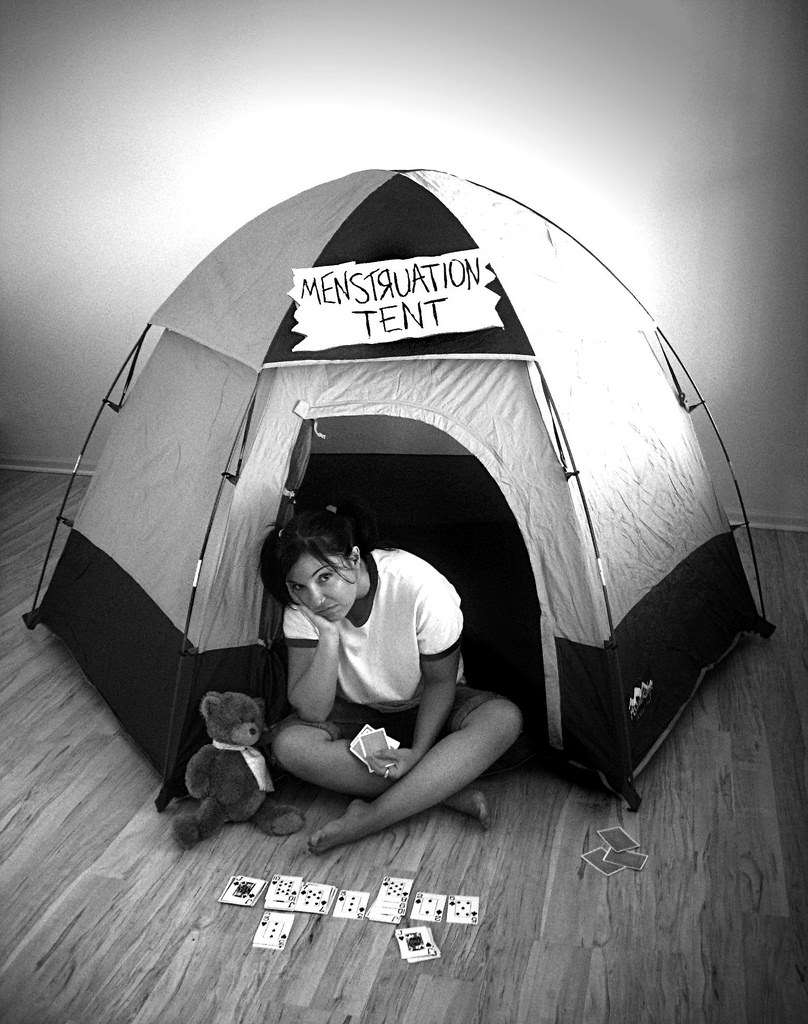Simmer Down, Internet—Nobody Is Actually Advocating for Paid Menstrual Leave


"Feminists, start asking for 'paid menstrual leave' and see how seriously you're taken," a headline at the Washington Examiner trumpeted earlier this week. It was one of many articles either a) expressing disbelief and outrage over the idea of paid work leave for women on their periods or b) earnestly and vociferously arguing against the idea.
The problem? No one was arguing for it. Among the countless polemics and polls on the topic, I've seen nary a writer—nary a feminist writer, even—suggest that menstrual leave is something that U.S. employers or legislators should consider. But let's look at a few more recent headlines:
From Slate: "Thanks, But We'll Pass on Paid Menstrual Leave"
From Fox News: "Should the U.S. Have Paid Menstrual Leave?"
From The Irish Times: "Menstural Leave? I'll Pass, Thanks"
From Forbes: "We Don't Want Paid Menstrual Leave Because It Will Increase the Pay Gap"
From WorldNetDaily: "HuffPost Endorses Paid Menstrual Leave"
The Huffington Post did not, in fact, "endorse" paid menstrual leave, though its video arm, HuffPost Live, did do a segment on the topic. In said segment, prominent feminist writer Mikki Kendall and "Skepchick" blogger Rebecca Kay Watson both advocated for paid employee sick leave in general, though both explicitly rejected the idea of women getting extra time for period purposes.
In fact, as far as I can tell, the closest we've come to an "endorsement" has come from singer Macy Gray, who—when approached spontaneously by TMZ papparazzi and asked if she supported the idea—replied: "Yeah, I think so. It's a little painful. It's not a good day at work." The great feminist conspiracy to make you subsidize our bodily functions, folks!
So…how did all this get started? An article published last Saturday at The Atlantic. It was written by Emily Matchar, author of the 2013 book Homeward Bound: The New Cult of Domesticity and someone whose work I've long enjoyed. Matchar writes like a reporter and a sociologist, not an advocate. In this case, the most inflammatory things about her article were the headline—"Should Paid Menstrual Leave Be a Thing?—and the subtitle, which proclaims that "some countries mandate a legal right to leave for women during their periods," and asks, "Is that reverse sexism or the right thing to do?"
The article, then, comes down pretty firmly against the idea that it's the right thing to do. Matchar highlights existing menstrual leave policies in countries such as Indonesia, South Korea, and Taiwan, and it's not a pretty or enlightened picture.
"These Asian menstrual leave policies appear to be based on the scientifically dubious notion that women who don't rest during their menses will have difficulty in childbirth later. Some say the laws are therefore more about treating women as future baby-vessels than valued employees."
Then there's Russia. Last year, a Russian lawmaker proposed a law that would give female employees two days off per month for menstrual leave. His reasoning:
During that period (of menstruation), most women experience psychological and physiological discomfort. The pain for the fair sex is often so intense that it is necessary to call an ambulance … Strong pain induces heightened fatigue, reduces memory and work-competence and leads to colorful expressions of emotional discomfort.
The bill was condemned by Russian feminists and went nowhere, according to Matchar.
Now I know that some American feminists love to advocate for government solutions to social, cultural, and economic problems. So I guess I can understand why some people, especially those who have very little exposure to actual feminists, might believe that menstrual leave was a serious feminist agenda item. But, for decades, equality-minded women have been fighting against the notion that "the fair sex" is unable to function for several days a month because of lady business and lunar cycles. Paid menstrual leave, my friends, is a straw feminist conceit of the highest order. Save your outrage—there is always another cop shooting another dog.
